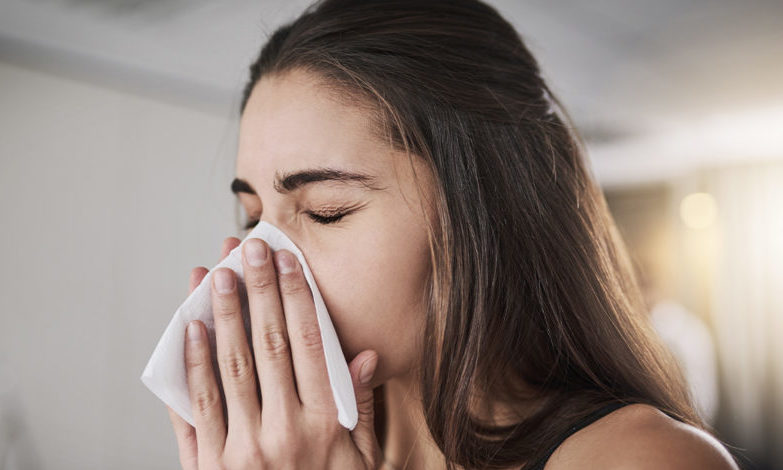Some sneezes are meant to clear irritants from our nasal passages.
However, some people sneeze for more unusual reasons
The following written content by Rebecca Strong

We all know the feeling: It usually starts with a peculiar tickle in your nose, quickly building to an explosive and satisfying blast out of your mouth and nose. But why do we sneeze?
As it turns out, sneezing is your body’s way of getting rid of visible or microscopic allergens, viruses, and irritants, says Matthew Purkey, MD, an ear, nose, and throat doctor practicing in Hoffman Estates, Illinois for Duly Health and Care.
“When our upper airway, especially our nose, senses a foreign substance that is potentially harmful, we sneeze in response to expel the substance back out,” he tells Health.
So sneezing is a protective mechanism. But how come it can feel so satisfying, and why do sneezes often happen in a row? And is there any way to prevent a full-blown sneeze when you sense one is coming? Here’s what you need to know.

What happens when we sneeze?
A sneeze starts when an irritant enters your nose, says Dr. Purkey. There, the invader becomes entangled in nose hair, stimulating nerve endings, which sends a message to a part of the brain stem called the medulla. The medulla controls important yet involuntary functions like breathing, digestion, and heart rate.
Once the nerve signals reach the medulla, the brain initiates a physical response that involves closing your eyes, taking a deep breath, relaxing the muscles in your throat, and then forcing air, saliva, and mucus out your nose and mouth—all in a few seconds.
All sneezes begin and end the same way, but everyone has their own signature sneeze; a person’s sneeze is almost as unique as their voice. Why? It has to do with individual differences in lung capacity and the unique structure of your nose, throat, and mouth, Hascalovici says.
What causes sneezing?
Sneezes happen for many reasons—and not all of them make sense. In general, when we feel a tickle in our nose it’s likely due to a foreign body entering our sinuses. According to the National Library of Medicine, common triggers for sneezing include:
- Environmental irritants, like smoke, perfumes, and air pollution
- Allergies, caused by pet dander, pollen, or dust mites
- Infections like the common cold, COVID-19, and the flu
- Dry air, which irritates mucous membranes in the nose
- Peppers—including black pepper and chilli pepper—which contain a substance called piperine that irritates nasal passages. (It’s also what gives pepper its pungent taste.)
Beyond the sneeze triggers listed above, there are more peculiar ones, too. Some people sneeze after sex, according to the Sexual Medicine Society of North America. While it’s not entirely known why this happens, it may be because both sneezing and sexual arousal are controlled by the autonomic nervous system, which controls involuntary reactions, per the National Library of Medicine.
Additionally, in a fairly rare phenomenon coined “snatiation”—a combo of “sneeze” and “satiation”—some people sneeze after a large meal, Heather Moday, MD, an immunologist in private practice in Maine, tells Health.
People can also sneeze when suddenly exposed to bright light or while looking directly at the sun. Called photic sneeze reflex, this reaction is somewhat of a mystery. Research does indicate that it is at least partially genetic, Jacob Hascalovici, MD, a neuroscientist and chief medical officer at digital health care platform Clearing, tells Health.
Why do we close our eyes when we sneeze?
While it’s possible to sneeze with your eyes open, Purkey advises against it. Most people involuntarily close their eyes as a way to shield themselves from any irritants ejected via their nose and mouth, Purkey says. After all, who wants mucus in their peepers?
Why do we sometimes sneeze many times in a row?
Dr. Hascaolovici says this usually happens for a good reason: Your first sneeze didn’t clear your nasal passages well enough. Rest assured that a second or third sneeze is your body’s way of making sure any irritants have been safely expelled from your nose.
Why do sneezes feel good?
If you find sneezing pleasurable, you’re not alone. Letting out an “achoo!” instantly relieves the tickling sensation in the nose. It’s almost like scratching an itch. Read more from Health.
Subscribe





